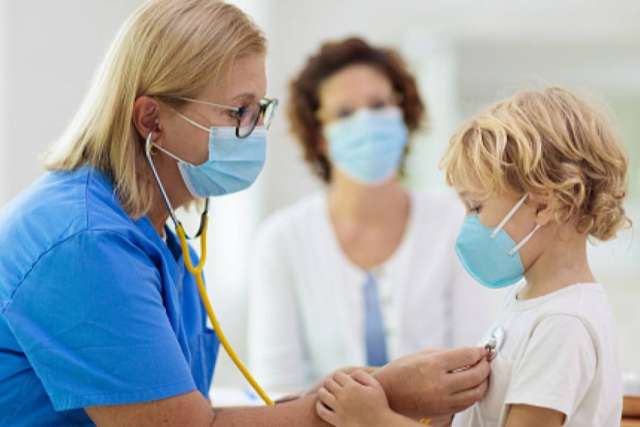“We know RSV is coming every year, but the degree to which it’s happening and the rapid increase in cases this early on is unusual,” says Annabelle de St. Maurice, MD, MPH, a pediatrician and co-chief infection prevention officer for UCLA Health.
RSV, or respiratory syncytial virus, is a seasonal virus that causes upper-respiratory symptoms in older children and adults. But the virus can cause serious illness in younger children and infants, including bronchiolitis — inflammation of the small airways in the lungs — that can be severe enough to require hospitalization.
Early spike in RSV cases
The virus typically circulates from October to May, Dr. de St. Maurice says, with cases peaking in January or February.
“We’re already seeing very high cases compared to prior years during the pandemic, so that’s concerning,” she says.
Experts attribute the spike to a high number of vulnerable children who were sheltered from common viruses during the pandemic.
“I think it’s because we have kids who haven’t had exposure to RSV and other viruses, so they don’t have that immunity,” says Dr. de St. Maurice. “Rather than having a mix of children who were exposed previously and are now immune and some children who are just born and haven’t been exposed, we have a lot of children who haven’t been exposed and are vulnerable to getting sick.”

According to the U.S. Centers for Disease Control and Prevention, “virtually all children” get an RSV infection by the time they turn 2. In most cases, RSV causes mild, cold-like symptoms. Infants younger than 6 months, premature infants and young children with chronic lung disease or congenital heart disease are particularly vulnerable to severe illness.
About 58,000 children younger than 5 are hospitalized for RSV each year in the U.S., according to the CDC.
RSV is spread through respiratory droplets or through contact with contaminated surfaces. Virus droplets on a toy can easily end up in the mouth of an infant or toddler. Adults and children should take care to cover coughs and sneezes and wash their hands often to prevent spreading RSV, Dr. de St. Maurice says.
Identifying and treating RSV
Most cases of RSV are mild and resolve on their own in about two weeks. Young children who are at high risk of serious illness from RSV — including babies born premature and infants with chronic lung disease or congenital heart disease — may be eligible to receive a monoclonal antibody called palivizumab.
“That’s usually given right around the onset of RSV season, because it can protect children against having severe comorbidities,” says Dr. de St. Maurice. “But it can only be given to really high-risk children.”
"I think it's because we have kids who haven't had exposure to RSV and other viruses, so they don't have that immunity."
dr. annabelle de st. maurice, on why rsv cases are spiking
There is no antiviral treatment for RSV, like there is for flu and other viruses. But some children may experience symptoms that require supportive medical care.
If parents notice that their infant is not having wet diapers every six hours or so, or is working hard to breathe — which may look like flared nostrils or using the chest and rib cage to breathe — they should get the child to a doctor right away, Dr. De St. Maurice says. Infants whose noses are clogged with mucous may have difficulty feeding because they are using their mouths to breathe.
There’s no way to tell by simply looking whether a child with respiratory symptoms is experiencing RSV, flu or COVID-19, Dr. De St. Maurice adds.
“If a child is struggling to breathe or really dehydrated, they should go to the emergency department,” she says. “Flu can be treated in this age group — we have antivirals for children. And certainly if they are seriously sick with COVID or RSV, you would want them to be seen to make sure they don’t require further support.”
Some children with severe RSV may need supplemental oxygen or ventilatory support, she says.
Parents whose children may be exhibiting mild symptoms, such as runny nose or fever, can speak to their pediatrician, Dr. de St. Maurice says.
Children 6 months and older can be vaccinated against flu and COVID-19. Expectant parents should also be vaccinated against these viruses, as they can pass some immunity to the child before birth. There is no vaccine for RSV, however studies are underway..
Learn more about pediatric services available through UCLA Health.




